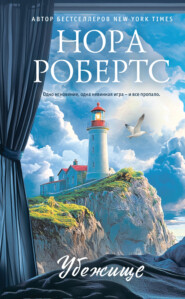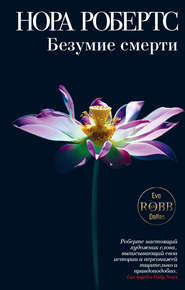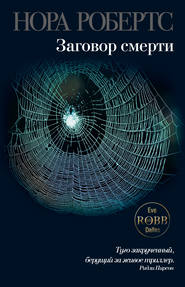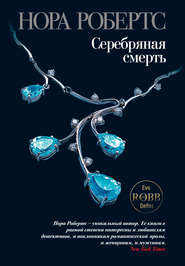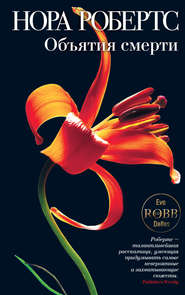По всем вопросам обращайтесь на: info@litportal.ru
(©) 2003-2025.
✖
The Stars of Mithra: Hidden Star
Автор
Год написания книги
2019
Настройки чтения
Размер шрифта
Высота строк
Поля
“When I handed you a pen to write, it didn’t feel awkward. You didn’t have to think about it. You just took it and used it.” He smiled a little and slipped the gun into his pocket, instead of the bag. “I think you’re a lot more accustomed to holding a pen than a .38 special.”
There was some relief in that, the simple logic of it. But it didn’t chase away all the clouds. “Maybe you’re right. It doesn’t mean I didn’t use it.”
“No, it doesn’t. And since you’ve obviously put your hands all over it, we can’t prove you didn’t. I can check and see if it’s registered and to whom.”
Her eyes lit with hope. “It could be mine.” She reached out, took his hand, squeezed it in a gesture that was thoughtless and natural. “We’d have a name then. I’d know my name then. I didn’t realize it could be so simple.”
“It may be simple.”
“You’re right.” She released his hand, began to pace. Her movements were smooth, controlled. “I’m getting ahead of myself. But it helps so much you see, so much more than I imagined, just to tell someone. Someone who knows how to figure things out. I don’t know if I’m very good at puzzles. Mr. Parris—”
“Cade,” he said, intrigued that he could find her economical movements so sexy. “Let’s keep it simple.”
“Cade.” She drew in a breath, let it out. “It’s nice to call someone by name. You’re the only person I know, the only person I remember having a conversation with. I can’t tell you how odd that is, and, right now, how comforting.”
“Why don’t we make me the first person you remember having a meal with? One candy bar isn’t much of a breakfast. You look worn out, Bailey.”
It was so odd to hear him use that name when he looked at her. Because it was all she had, she struggled to respond to it. “I’m tired,” she admitted. “It doesn’t feel as if I’ve slept very much. I don’t know when I’ve eaten last.”
“How do you feel about scrambled eggs?”
The smile wisped around her mouth again. “I haven’t the faintest idea.”
“Well, let’s find out.” He started to pick up the canvas bag, but she laid a hand over his on the straps.
“There’s something else.” She didn’t speak for a moment, but kept her eyes on his, as she had when she first walked in. Searching, measuring, deciding. But there was, she knew, really no choice. He was all she had. “Before I show you, I need to ask for a promise.”
“You hire me, Bailey, I work for you.”
“I don’t know if what I’m going to ask is completely ethical, but I still need your word. If during the course of your investigation you discover that I’ve committed a crime, I need your word that you’ll find out everything you can, all the circumstances, all the facts, before you turn me over to the police.”
He angled his head. “You assume I’ll turn you in.”
“If I’ve broken the law, I’ll expect you to turn me over to the police. But I need all the reasons before you do. I need to understand all the whys, the hows, the who. Will you give me your word on that?”
“Sure.” He took the hand she held out. It was delicate as porcelain, steady as a rock. And she, he thought, whoever she was, was a fascinating combination of the fragile and the steely. “No cops until we know all of it. You can trust me, Bailey.”
“You’re trying to make me comfortable with the name.” Again, without thinking, in a move that was as innate as the color of her eyes, she kissed his cheek. “You’re very kind.”
Kind enough, she thought, that he would hold her now if she asked. And she so desperately wanted to be held, soothed, to be promised that her world would snap back into focus again at any moment. But she needed to stand on her own. She could only hope she was the kind of woman who stood on her own feet and faced her own problems.
“There’s one more thing.” She turned to the canvas bag again, slid her hand deep inside, felt for the thick velvet pouch, the weight of what was snugged inside it. “I think it’s probably the most important thing.”
She drew it out and very carefully, with what he thought of as reverence, untied the pouch and slid its contents into the cup of her palm.
The money had surprised him, the gun had concerned him. But this awed him. The gleam of it, the regal glint, even in the rain-darkened room, held a stunning and sumptuous power.
The gem filled the palm of her hand, its facets clean and sharp enough to catch even the faintest flicker of light and shoot it into the air in bright, burning lances. It belonged, he thought, on the crown of a mythical queen, or lying heavily between the breasts of some ancient goddess.
“I’ve never seen a sapphire that big.”
“It isn’t a sapphire.” And when she passed it to his hand, she would have sworn she felt the exchange of heat. “It’s a blue diamond, somewhere around a hundred carats. Brilliant-cut, most likely from Asia Minor. There are no inclusions visible to the naked eye, and it is rare in both color and size. I’d have to guess its market worth at easily three times the amount of money in the bag.”
He wasn’t looking at the gem any longer, but at her. When she lifted her eyes to his, she shook her head. “I don’t know how I know. But I do. Just as I know it’s not all…it’s not…complete.”
“What do you mean?”
“I wish I knew. But it’s too strong a feeling, an almost-recognition. I know the stone is only part of the whole. Just as I know it can’t possibly belong to me. It doesn’t really belong to anyone. Any one,” she repeated, separating the word into two. “I must have stolen it.”
She pressed her lips together, lifted her chin, squared her shoulders. “I might have killed for it.”
Chapter 2
Cade took her home. It was the best option he could think of, tucking her away. And he wanted that canvas bag and its contents in his safe as quickly as possible. She hadn’t argued when he led her out of the building, had made no comment about the sleek little Jag parked in the narrow spot on the cracked asphalt lot.
He preferred using his nondescript and well-dented sedan for his work, but until it was out of the shop, he was stuck with the streamlined, eye-catching Jaguar.
But she said nothing, not even when he drove into a lovely old neighborhood with graceful shade trees and tidy flower-trimmed lawns and into the driveway of a dignified Federal-style brick house.
He’d been prepared to explain that he’d inherited it from a great-aunt who had a soft spot for him—which was true enough. And that he lived there because he liked the quiet and convenience of the established neighborhood in the heart of Washington.
But she didn’t ask.
It seemed to Cade that she’d simply run down. Whatever energy had pushed her into going out in the rain, seeking his office and telling her story had drained out, leaving her listless.
And fragile again. He had to check the urge to simply gather her up and carry her inside. He could imagine it clearly—the stalwart knight, my lady’s champion, carrying her into the safety of the castle and away from any and all dragons that plagued her.
He really had to stop thinking things like that.
Instead, he hefted the canvas bag, took her unresisting hand and led her through the graceful foyer, down the hall and directly into the kitchen.
“Scrambled eggs,” he said, pulling out a chair for her and nudging her down to sit at the pedestal table.
“All right. Yes. Thank you.”
She felt limp, unfocused, and terribly grateful to him. He wasn’t peppering her with questions, nor had he looked particularly shocked or appalled by her story. Perhaps it was the nature of his business that made him take it all in stride, but whatever the reason, she was thankful for the time he was giving her to recoup.
Now he was moving around the kitchen in a casual, competent manner. Breaking brown eggs in a white bowl, popping bread in a toaster that sat on a granite-colored counter. She should offer to help, she thought. It seemed the right thing to do. But she was so dreadfully tired, and it was so pleasant to just sit in the big kitchen with rain drumming musically on the roof and watch him handle the simple task of making breakfast.
He was taking care of her. And she was letting him. Bailey closed her eyes and wondered if she was the kind of woman who needed to be tended to by a man, who enjoyed the role of the helpless female.
She hoped not, almost fiercely hoped not. Then wondered why such a minor, insignificant personality trait should matter so much, when she couldn’t be sure she wasn’t a thief or murderer.
She caught herself studying her hands, wondering about them. Short, neat, rounded nails coated in clear polish. Did that mean she was practical? The hands were soft, uncallused. It was doubtful she worked with them, pursued manual labor of any kind.
The rings… Very pretty, not bold so much as unique. At least it seemed they were. She knew the stones that winked back at her. Garnet, citrine, amethyst. How could she know the names of colored stones and not know the name of her closest friend?
Did she have any friends?






